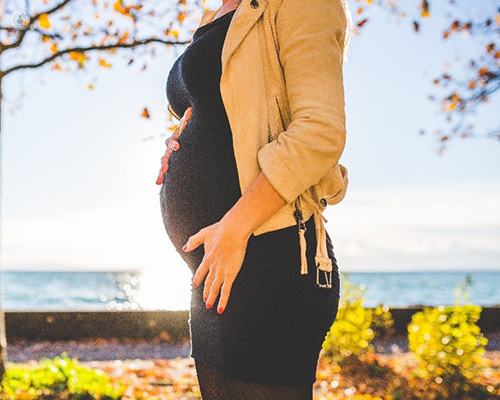IVF and recurrent implantation failure: What you need to know
Autore:Methods of in vitro fertilisation have developed dramatically since the first baby was born using this method in 1978. However, some respond better to this method than others. Luckily, chances of IVF working can be boosted with the right medical attention. We recently spoke with leading fertility specialist Dr Irfana Koita to talk about how recurrent implantation failure should be managed, the types of tests that are performed to find the cause and what the latest innovations are.

Why is it necessary for recurrent implantation screening to take place?
In terms of recurrent implantation failure, up to around 10% of IVF cycles result in implantation problems. It’s quite a challenging scenario not only for the clinicians but it’s also quite demoralising for patients. It would be good to navigate this situation so that we can find suitable solutions. Sadly, enough there is no criteria or definition which is universally agreed at the moment. And the definition itself remains quite controversial. Some authors have regarded up to three IVF embryo transfer cycles that are unsuccessful as recurrent implantation failure situations, but more recently, there has been a shift not only based on the number of embryo transfers but also keeping the embryo quality in mind. A more recent definition or criteria that is accepted is that, if there are four or more embryos that have been transferred, that are good quality, whether fresh or closing, in a woman under 40 years of age, then that would be regarded as recurrent implantation failure.
What types of tests are done to determine the cause of recurrent implantation failure?
In terms of tests which we have been doing traditionally, the one that is considered potentially beneficial is the chromosome analysis, that’s to be done in both the male and female partner. Tests such as checking for thyroid function, which have included the antibody test, testing blood sugar levels have been traditionally performed. Assessment for the uterine cavity, in terms of either a saline scan or putting in a telescope, have been proposed but there is currently very little evidence to suggest that performing a hysteroscopy is beneficial. More recently, testing for immune system problems has been of growing interest, the tests do remain controversial. The tests such as endometrial biopsy for assessment of immune problems has generated a lot of interest globally, assessment of the cells that line the uterus, such as checking or performing a histology or tissue culture, don’t seem to be recommended for those who have recurrent implantation failures as far as tests for the female partner are concerned. With regards to the male partner, although performing DNA fragmentation index is fairly routine, the evidence of those who have recurrent implantation failures is not very strong. Currently, in terms of the treatment, the treatment of course will depend based on the test that are performed and these will need to be based on personal needs, performing preimplantation genetic testing with embryos, may help with better embryo selection and is what is quite commonly performed by clinics.
What are the latest innovations and alternatives to IVF?
In terms of more recent modalities are the use of GCSF, either through intrauterine infusion or subcutaneous route and the use of what is described as blood mononuclear cell treatment which is an intrauterine infusion, this is to be considered in a research setting, not for clinical use as such. These are some of the options that remain available, as I said, they’re quite controversial and also with very limited evidence, quite challenging for clinicians and couples.
If you are considering IVF or may require assessment for recurrent implantation failure, we recommend booking an appointment with Dr Irfana Koita, a highly experienced fertility consultant. Click here to visit her Top Doctors profile today.


